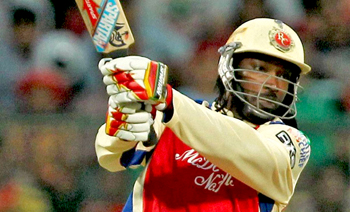Oct 20: The sudden cancellation of the ongoing India tour by the West Indian players has triggered a lot of controversies. The Board of Control for Cricket in India (BCCI) is thinking about withdrawing all relations with The West Indies Cricket Board (WICB). Some reports even suggested that Indian board might ban the Caribbean cricketers in the lucrative Indian Premier League (IPL). Sandipan Banerjee digs deep and finds out the possibility of this ban before the IPL Governing council meeting on October 21.
 “Love it. Hate it. But you cannot ignore it.” -This much-used adage is tailor-made for the lucrative IPL. Since its commencement in 2008 IPL has managed to court success, controversy and cynicism in equal measure. But what it has always managed is to stay top-of-the-mind. IPL is not just a cricket tournament now; it has become a brand — a brand that has put Indian cricket at the top of cricketing world.
“Love it. Hate it. But you cannot ignore it.” -This much-used adage is tailor-made for the lucrative IPL. Since its commencement in 2008 IPL has managed to court success, controversy and cynicism in equal measure. But what it has always managed is to stay top-of-the-mind. IPL is not just a cricket tournament now; it has become a brand — a brand that has put Indian cricket at the top of cricketing world.
To build this brand, the West Indian cricketers had contributed a lot. Whenever people think of IPL, it reminds them of the gigantic sixes of ‘CG’ (Chris Gayle), the mystique of Sunil Narine, the calypso jigs of Dwayne Bravo, the acrobatic fielding of Kieron Pollard, the controlled aggression of Dwayne Smith, or the ubiquitous resilience of Darren Sammy. IPL, as they call, is, “Cricketainment”, and Caribbean cricketers provide tremendous value for almost every franchise as well as the tournament as a whole.
Additionally, West Indian cricketers have often been faces of different franchises when it comes to promotion. Gayle, for example, is the undisputed face of Royal Challengers Bangalore (RCB) at this moment despite the presence of giants like AB de Villiers and Virat Kohli. Will Vijay Maliya accept a sudden ban on his most influential and most productive cricketer? And while we talk of Gayle, what about other champions like Pollard, Narine, and Bravo, who have carved out respective niches in IPL when it comes to representing teams? Their ‘Brand Values’ are undeniably high; sponsors invest on these stars, which, in turn, bring revenue for the franchises and the tournament as a whole.
It will not be easy for BCCI to proceed on this sensitive issue without consulting the franchises. Having said that, , keeping the rigid nature of BCCI in mind, there is a possibility that they will still go ahead with the decision, in which case there may be a showdown between them and franchises.
According to some sources the IPL career of the Caribbean cricketers are already secured. West Indies were firm when it came to not take field in the fourth One-day International (ODI) at Dharamsala, but a few top WICB members convinced the players to play the match which in turn will secure their IPL future.
The fate of the players will be decided in the IPL governing council meeting in Hyderabad on October 21, but looking from outside it can be said risking the IPL brand value by banning the Calypso charmers will be a big gamble by BCCI. Will they take this gamble? Highly unlikely.





Comments
Add new comment